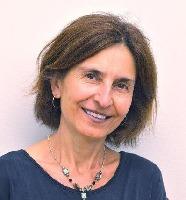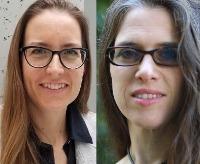Blog
Unless otherwise stated, content is shared under CC-BY-NC Licence
Audiovisual archives & digital preservation
Bertram Lyons is Senior Consultant for AVP
I want to tell a story to demonstrate the inherent relationship between audiovisual preservation and digital preservation.
1. What is it about audiovisual preservation today that requires us to engage in digital preservation?
My story begins with a collection of folk music analog audio recordings in the Alan Lomax Archive.
The year is 2002. The recordings -- I’ll focus on the 2,000 quarter-inch magnetic reel to reel audio tapes -- date from 1948 to 1997. They vary in composition from paper, to acetate, to polyester. They display a variety of states of physical condition, from excellent, to disheveled, to disintegrating, to sticky.
Cloud-Enabled Preservation of Life in the 20th Century White House
Stephanie Tuszynski is Director of the White House Historical Association Digital Library in Washington DC, USA
The White House Historical Association was founded in 1961 to "enhance the understanding and appreciation" of the White House by offering educational resources to students, teachers, scholars, and the general public to help them learn about the building and its history. The WHHA Digital Library is a key piece of our outreach strategy, with more than 10,000 images and documents in our growing collection available to the public for free at whha.org/library.
The "Cloud-Enabled Preservation of Life in the 20th Century White House" project is making previously-inaccessible images of the White House available for the first time. The Association has thousands of photos covering public and private events at the White House from the Kennedy era through the current administration, which we are adding to the Digital Library with the help of Amazon Rekognition (a cloud-based facial recognition technology) in the processing of our collections, and by using Amazon Glacier cloud storage for the long-term preservation of these materials.
Perspectives on the Evolving Ecology of Digital Preservation
Oya Y. Rieger is Senior Advisor at Ithaka S+R, based in New York
As an organization that provides research and consultancy services to the global higher education community to support the creation, discovery, dissemination, and preservation of scholarship, Ithaka S+R is interested in exploring the current landscape of digital preservation programs and services in order to identify research questions that will contribute to the advancement of strategies in support of future scholarship. To this end, we recently published a brief, The State of Digital Preservation in 2018: A Snapshot of Challenges and Gaps, which is based on interviews with 21 experts and thought leaders to survey their perspectives on the state of digital preservation. The digital preservation community now represents deeper expertise involving a robust exchange of best practices, standards, preservation techniques, tools, and systems. Nevertheless, given the complexity of designing preservation strategies at scale, it is inevitable that there is lingering anxiety.
PDFS: When a Standard isn’t Standard in your Collections
Leslie Johnston is Director of Digital Preservation at the U.S. National Archives and Records Administration (NARA) in Washington DC, USA
In 2017 the DPC announced its “Bit List” of Digitally Endangered Species as a crowd-sourcing exercise to discover which digital materials our community thinks are most at risk, as well as those which are relatively safe thanks to digital preservation. The “Items of Concern” portion of the list included PDF, a format bearing some discussion and use cases.
Let’s start with a number - the U.S. National Archives and Records Administration (NARA) has over 10.2 million PDFs in its holdings. In a collection of close to 1.5 billion files, that doesn't seem like a significant file management challenge, until one digs deeper into the data.
During 2017, NARA created a Holdings Profile: see my blog post for World Digital Preservation Day 2017 for an introduction to that work. The outcome was an analysis of what formats NARA has in the holdings. It’s inevitably not perfect, as there are always levels of uncertainty involved in assessing file formats, especially when an organization has been accepting a wide variety for formats for 50 years. There are different levels of tooling in place for different portions of the holdings housed in different preservation systems, something that will be gradually rectified as we migrate records into the new ERA 2.0 system.
A Parliament of Owls: Leveraging internal wisdom to build support for digital records
Jeanne Kramer-Smyth is Archivist and April Miller is Program Lead for Archives at World Bank Group Archives

World Bank Group Archives Digital Vault logo.
We considered writing a blog post about the technical solutions selected for the World Bank Group (WBG) Archives’ “Digital Vault” digital preservation project. We spent months working through an RFI and RFP, selecting a vendor, and finalizing contract negotiations. This was followed by work on technical design and internal approvals.
This is not what this blog post is about. Instead, this post is about identifying and tackling the people and process investments required to evolve into an archives that handles both analog and born-digital records.
Typology of Digital Collection as a Framework for Digital Preservation
Helen Hockx-Yu is Program Manager for Digital Asset Strategy and Don Brower is the Digital Library Infrastructure Lead at the University of Notre Dame in the USA
Like many academic and research libraries, the University of Notre Dame's Hesburgh Library collection has evolved over the last twenty years or so from analogue to increasingly digital, and from a physically owned and locally stored collection to a broad range of both local and external resources, organised around users’ needs.
The complexity and varied nature of our collection means this is no one- size-fits-all digital preservation approach. Different strategy is required dependent of the significant properties of the collection items.
To gain a better understanding of the Library’s overall digital content, and to help plan for digital preservation, we recently co-led a project at Hesburgh Libraries, University of Notre Dame, where we developed a Typology of Digital Collection as a framework to guide digital preservation.
The Archivist’s Guide to KryoFlux
Dorothy Waugh is Digital Archivist at Emory University in the USA
On this World Digital Preservation Day, we’re here to remind you of the humble floppy disk, last century’s save icon. Though limited in terms of capacity, these inexpensive and lightweight disks were the dominant storage device for three decades, as is evidenced by the boxes of floppy disks now found among the stacks of most archives. Among the disks at Emory University are files created by novelist and Pulitzer Prize winner Alice Walker, poet and former US Poet Laureate Natasha Trethewey, poet and writer Lucille Clifton, and the Southern Christian Leadership Conference (an Atlanta-based organization founded in the wake of the 1957 Montgomery Bus Boycott under the leadership of Dr. Martin Luther King). Unfortunately, the deterioration of such magnetic media due to age and poor storage conditions has been difficult to avoid and, with even the youngest of these disks now approaching twenty years old, recovery of data frequently proves challenging.
On Robustness
Christopher (Cal) Lee works at the School of Information and Library Science at the University of North Carolina at Chapel Hill
Digital preservation is about conveying meaningful information between contexts over time [1]. A great deal of the complexity stems from digital information residing at multiple levels of representation [2] This process is never free. It requires resources (human, technical, financial). Ensuring a steady flow of resources over time is difficult.
At any given time, dedicated individuals and informal groups play a vital role in the provision of resources (collecting, organizing, storing and sharing information in which they have an interest). Commercial providers of information systems also play a major role, by providing the platforms upon which consumers create, manage and share information.
Preserving Research Data
Brian Lavoie is Senior Research Scientist for OCLC Research
The scholarly record is evolving to incorporate a broader range of research outputs, moving beyond traditional publications like journal articles and monographs. Research data is a salient and well-documented example of this shift, and many universities are now investing considerable resources in developing RDM services for their campus, as we document in our recent Realities of Research Data Management report series. These services sit alongside much of the research life cycle, from support in developing data management plans prior to commencing research (think of DMPOnline or DMPTool), to computing and storage resources for storing, working with, and sharing data during the research process (often called active data management; for example, the DataStore service at the University of Edinburgh), to data repository services for storage, discovery, and access to final data sets (like the University of Illinois Data Bank).
Contrastes en Preservación Digital: Lo que hemos aprendido de sistemas de Preservación Digital Distribuida y Metodologías Tradicionales / Contrasts in Digital Preservation: What we have learned from Distributed Digital Preservation Systems and Traditional
Pamela Vízner es Consultora de AVP / Pamela Vízner is a Consultant for AVP
Como comunidad enfrentada a la responsabilidad de preservar la memoria de nuestras respectivas organizaciones, nos ha tocado una tarea difícil. Casi la de adivinos. Cuando hablamos de la preservación y de proteger y poner a disposición “para siempre” nuestra historia - en el medio que sea se haya originado, papel, objetos, audiovisual, etc. - dichas palabras nos quedan grandes. Hay mucha incertidumbre en ese “para siempre”. Sin embargo, hemos sido capaces de encontrar juntos poco a poco la respuesta a nuestras necesidades, y seguimos construyendo en esa dirección. Las comunidades son de suma importancia en nuestro quehacer, y cómo hemos dado forma a nuestra disciplina a pesar de esa incertidumbre. ¿Será que un enfoque comunitario es la respuesta a nuestras necesidades en preservación digital?



















































































































































